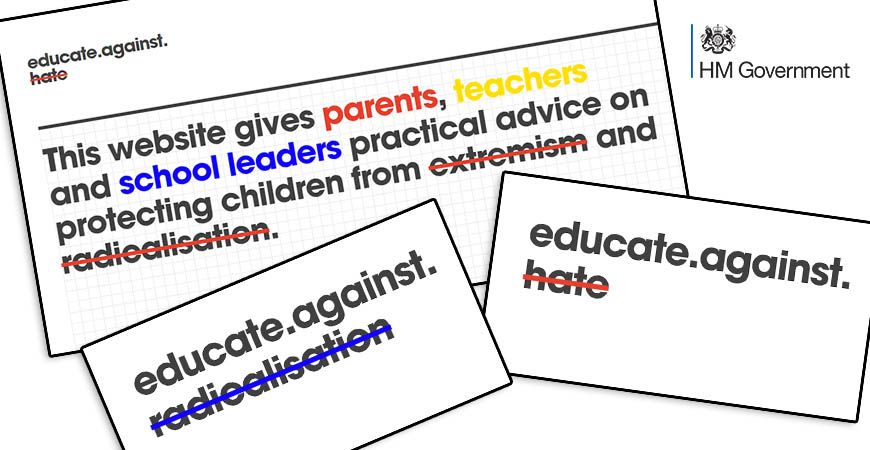PREVENT is the multi-agency set of arrangements aimed at preventing individuals and groups from engaging in violent extremism. PREVENT is not aimed at suppressing freedom of thought and expression.
Early indicators of extremism may include:
- Showing sympathy for extremist causes
- Glorifying violence
- Evidence of possessing illegal or extremist literature
- Advocating messages similar to illegal organisations such as ‘Muslims Against Crusades’ or other non-proscribed extremist groups such as the English Defence league
- Out of character changes in dress, behaviour and peer relationships
The Department for Education (DfE) has a website dedicated to PREVENT, called Educate Against Hate. The site brings together the best advice, support and resources available for parents, teachers and school leaders who want to learn how to protect young people from extremism and radicalisation. This is the result of successful collaboration between the Department for Education, the Home Office, the NSPCC, Internet Matters, Childnet, ParentZone, UK Internet Safety Centre, and the many other organisations who have contributed resources.
As of July 2015, the Counter-Terrorism and Security Act (HMG, 2015) placed a new duty on schools and other education providers. Under section 26 of the Act, schools are required, in the exercise of their functions, to have “due regard to the need to prevent people from being drawn into terrorism”. This duty is known as the PREVENT duty.
It requires schools to:
- teach a broad and balanced curriculum which promotes spiritual, moral, cultural, mental and physical development of students and prepares them for the opportunities, responsibilities and experiences of life and must promote community cohesion
- be safe spaces in which children / young people can understand and discuss sensitive topics, including terrorism and the extremist ideas that are part of terrorist ideology, and learn how to challenge these ideas
- be mindful of their existing duties to forbid political indoctrination and secure a balanced presentation of political issues
Our school works in accordance with the PREVENT Duty and approaches this issue in the same way as any other child protection matter. Any concerns that one of our students is at risk in this respect, will be referred to Children’s Social Care in line with the SET procedures. Guidance for schools on the Prevent agenda has been published..
All staff at Notley High School have received specific training in the Prevent Duty.
If a member of staff has any concerns about any of our students with regard to becoming radicalised, then they have a duty to refer to me, in the same way as any other child protection concerns.
General safeguarding principles apply to keeping children safe from the risk of radicalisation as set out in the relevant statutory guidance, Working together to safeguard children and Keeping children safe in education.
Mrs M Townsend
Deputy Headteacher

